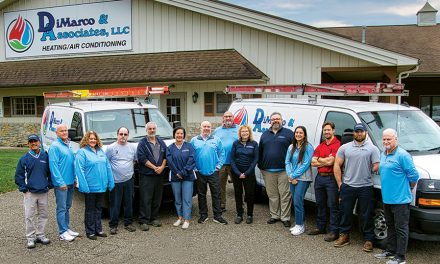Changes Keep Coming

Ben Middleton: It’s no secret that we live in a time of accelerated change and transformation. Think about all the technological advancements, globalization, and other factors that are accelerating change throughout the world.
Our industry has been shielded for a long time because North America is the only place that primarily uses ducted systems in residential applications.
Now you see manufacturers from all over the world importing non-ducted solutions in a quest for better efficiencies. You also see significant changes in regulations that impact the entire HVAC supply chain.
With all that going on, contractors need organizations to help them adapt. For example, just because a contractor can work on a ducted system doesn’t mean they know how to install a geothermal system. Just because they can work on a geothermal system doesn’t mean they can work on a hydronic system.
There are so many technologies today that nobody can be expert in all of them. Contractors need help. I see the HVAC Industry evolving into one made up of specialists, just like in the medical industry. We have general practitioners who refer us to specialists to get at the root of whatever medical issue we are having. I see that happening in the HVAC Industry as well. That is an evolutionary change from how this industry has always worked.
So even with all the changes flying at this industry, I feel that contractors need to return to the industry’s original focus: being a skilled trade.
Change Adaption Means Partnership

Robin LeBaron: I completely agree with Ben. I would add in the need to develop best practices and training contractors on how to adopt these skills.
I love that NCI is a training ground for High-Performance HVAC contractors. They may be at the small end of the spectrum, but they’re hungry for growth and want to do it in the right way.
That’s exciting because our take on the industry is that the top end of the spectrum is not nearly as large as it should be to meet the growing demand. NCI is helping to solve that problem. That helps us as well because we want better contractors in our network.

Chad McAllister: That very much falls in line with what we’re looking at as a distributor. NCI attracts top-level contractors, as do most best practice groups. We hope that supporting such groups helps them attract more people into the high-performance realm.
We need more contractors to see performance as testing, measuring, and diagnosing HVAC systems, then verifying their results and fixing problems. That is an important dynamic that goes well beyond just installing equipment.
As an HVAC distributor, we love people who install HVAC systems, but we love them even more, when we don’t have warranty or other problems with their work.

Colleen Keyworth: In addition to all the technical expertise, contractors also need best practices for business and marketing. Having a well-rounded business approach helps contractors set themselves apart from competitors and do what they must to stay on top of their game.

Ben Middleton: As an equipment manufacturer, it is natural for our focus to be on the product. But at a recent NCI conference, Goodman’s Global Group president Satoru Akama said that manufacturers take pieces of metal and plastic and put them together into a box. He then said it’s the HVAC contractors who bring systems to life.
I think that is so very true. I also believe that what gives our equipment its reputation and allows us to offer the types of warranties and support that we do is the expertise in the field.
But there are challenges to this. The United States is one of the least HVAC-regulated countries globally, making it very easy for anyone to become a contractor. That has its pluses and minuses. One of the negatives is that consumers have little protection.
It’s not plug-and-play. Manufacturers rely on contractors primarily for assistance to make systems work. That is why we need different certifications and different levels of recognition so that homeowners and other people can see the quality and be confident they are getting what they pay for.













Recent Comments